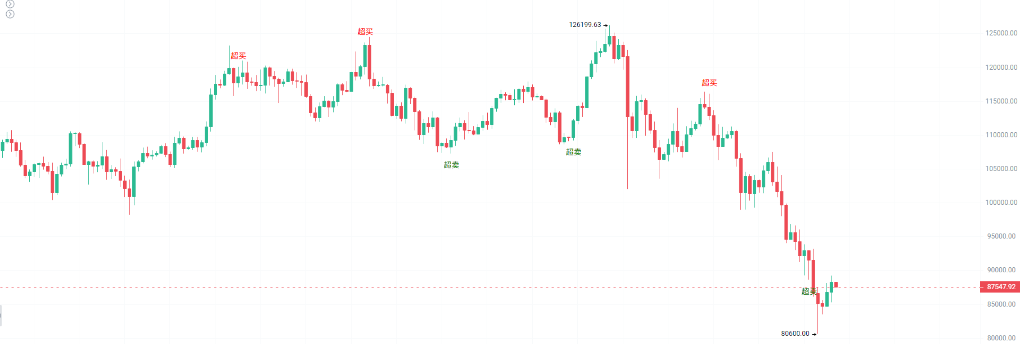Bitcoin News Today: U.S. Government Bets Big on Bitcoin’s National Security Potential
- U.S. CIA integrates Bitcoin into counter-intelligence operations, collaborating with law enforcement to monitor transactions as a national security priority. - Commerce Department publishes GDP data on Bitcoin blockchain via cryptographic hashes, endorsing blockchain as a supplementary data integrity tool. - CFTC enables offshore crypto exchanges to serve U.S. investors via FBOT registration, aligning with Trump's "crypto sprint" to modernize regulations. - Senator Lummis proposes Bitcoin Reserve bill to
The U.S. Central Intelligence Agency has acknowledged Bitcoin as a critical component of national security, according to statements made by Deputy Director Michael Ellis on the Pomp Podcast. Ellis emphasized that the agency is integrating Bitcoin into its operations, treating it as a vital element of counter-intelligence and data collection. He noted that the intelligence community collaborates with law enforcement to monitor Bitcoin transactions and underscored the inevitability of its continued adoption by institutions. This alignment with broader trends under the current administration signals a strategic shift in how the U.S. government views the role of cryptocurrency in global intelligence and financial security [1].
In a separate development, the U.S. Commerce Department has begun publishing gross domestic product (GDP) data on public blockchains, including Bitcoin. This move, reported by Bloomberg, represents a significant endorsement of blockchain technology by the Trump administration. The initiative involves posting cryptographic hashes of GDP data as digital fingerprints to verify their integrity, with officials indicating that the blockchain rollout is an additional distribution channel rather than a replacement for traditional methods. Commerce Secretary Howard Lutnick, a key proponent of the project, highlighted that the administration’s adoption of blockchain is part of a broader effort to leverage digital assets in government operations [2].
The U.S. Commodity Futures Trading Commission (CFTC) has also taken steps to facilitate greater access to offshore crypto exchanges for U.S. investors. The CFTC announced a pathway for these platforms to legally serve American clients by registering under the Foreign Board of Trade (FBOT) framework. Acting CFTC Director Caroline Pham stated that this policy change aims to enhance market efficiency and safety while expanding U.S. participation in global crypto markets. This development aligns with the Trump administration’s broader “crypto sprint” initiative to modernize U.S. regulations and attract crypto firms back to the country [3].
A significant regulatory update comes in the form of the Bitcoin regulation bill proposed by U.S. Senator Cynthia Lummis, expected to pass by Christmas. The bill aims to modernize tax laws, create a U.S. Bitcoin Reserve, and establish clearer investor protections. The proposed reserve, analogous to a gold reserve, could accumulate a substantial quantity of Bitcoin under government control, potentially influencing market liquidity and investor perceptions. While the U.S. Bitcoin Reserve is not intended for active trading, its existence could reshape the market dynamics, particularly in terms of long-term stability and institutional confidence [4].
Amid these regulatory and policy developments, Bitwise’s European research director, André Dragosch, has forecasted that Bitcoin could reach $1 million by 2029. This prediction is based on the assumption that institutional adoption will drive structural inflows into Bitcoin, potentially allowing it to surpass gold’s market capitalization. Gold currently holds a market value of over $21.7 trillion, while Bitcoin’s is at $1.9 trillion. For Bitcoin to achieve this, it must overcome significant hurdles, including regulatory clarity, market volatility, and broader institutional acceptance [1].
These developments collectively indicate a growing recognition of Bitcoin’s role in both financial and geopolitical spheres. As the U.S. government continues to explore blockchain integration, from economic data to asset reserves, the cryptocurrency ecosystem is poised for a period of regulatory evolution and strategic repositioning. The ongoing efforts to harmonize policies, expand market access, and integrate digital assets into national economic frameworks suggest that Bitcoin’s trajectory is increasingly intertwined with the financial systems of the future [1][2][3][4].
Source:

Disclaimer: The content of this article solely reflects the author's opinion and does not represent the platform in any capacity. This article is not intended to serve as a reference for making investment decisions.
You may also like
Is the crypto market experiencing a rebound or a reversal?

Global assets surge as the Federal Reserve signals interest rate cuts


Federal Reserve December Rate Cut: A Comprehensive Analysis of Supporters and Opponents
